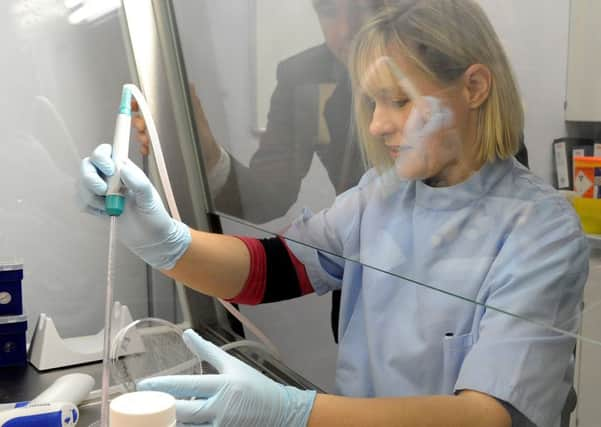Sir John Elvidge & David Cole-Hamilton: Links with Europe must be retained


The advice papers agree the immediate priority for the UK Government is to legislate on its offer to guarantee the rights of EU citizens living within the UK and to argue for reciprocal rights for UK citizens living within the EU.
The UK is one of the most successful of all countries for research and innovation and has a vibrant tertiary education system. Part of the success of these two sectors arises because of our very strong interactions with Europe through schemes such as Horizon 2020 (H2020), the main vehicle for funding research and innovation, and the Erasmus+ programme of student exchange. Over 14 per cent of UK University research funding comes from EU resources. The UK has been especially successful in securing 15.4 per cent of the available funding from Horizon 2020, with Scotland receiving more per head of population than any other UK region.
Advertisement
Hide AdAdvertisement
Hide AdBut it is not all about money. Much more importantly, 17 per cent of UK universities’ academic staff are EU nationals. In Scotland, EU nationals comprise 23 per centof research-only staff and 22 per cent of Scotland’s student population are EU and international students. Exchange programmes allow UK nationals to broaden their career development in the best European centres.
H2020 funds long-term curiosity driven research through the European Research Council (ERC). Intense competition has driven quality to new heights and holders of ERC grants enjoy special prestige. Collaborative projects involving 20-plus academic and industrial groups drawn from several different countries tackling huge problems such as climate change, cancer and antimicrobial resistance take novel and exciting findings to the industrial demonstration stage. The planned European Innovation Council will commercialise them. Special programmes support SMEs and large facilities allow studies that no country alone could fund.
It would be extremely damaging if these advantages were to be lost. We call on the UK Government to develop a relationship that allows: 1) the easy movement of researchers, innovators and students between the UK and the EU, 2) the ability to compete with our European counterparts for fundamental grants and 3) the ability to collaborate with our colleagues in projects which are of sufficient critical mass to make a difference. We urge the UK Government to ensure that regulations make collaboration straightforward and that government funding be maintained at least at the current level.
The best way to achieve these goals is for the UK to remain fully in H2020 and the European Research Area, including shaping the projects and planning future programmes.
Sir John Elvidge is chair of the RSE European Strategy Group and David Cole-Hamilton chairs the Research, Innovation and Tertiary Education sub-group.